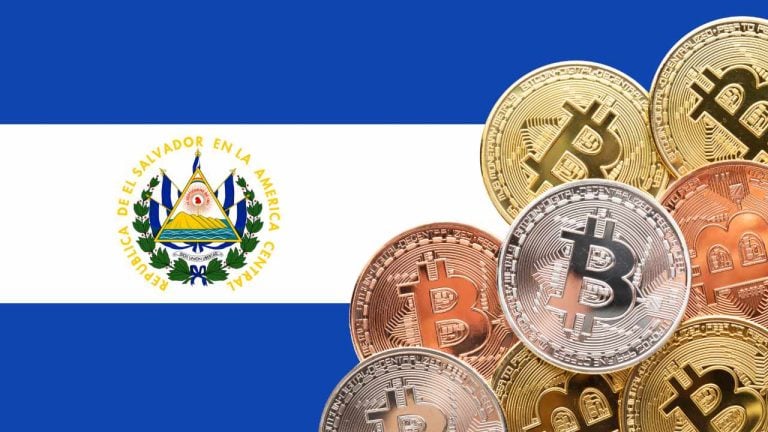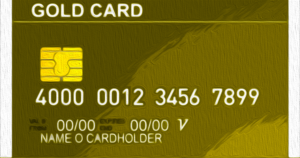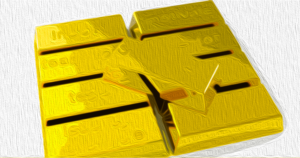
Bitcoin to Remain Legal Tender in El Salvador
El Salvador has reaffirmed its commitment to embracing bitcoin despite the International Monetary Fund's repeated calls for the country to drop the cryptocurrency as legal tender. The Salvadoran vice president emphasized that not only will El Salvador's bitcoin law be maintained but at this moment the cryptocurrency also "enjoys the greatest credibility in the entire world."
El Salvador Vice President Félix Ulloa said in an interview with Reuters on Wednesday that bitcoin will remain legal tender in El Salvador during the second term of President Nayib Bukele even after the International Monetary Fund (IMF) again urged the country to drop the cryptocurrency as legal tender during negotiations for a billion-dollar loan. General elections will be held in El Salvador on Feb. 4 to elect the president, vice president, and all 60 deputies of the Legislative Assembly.
Government's Resolve to Keep Bitcoin as Legal Tender
Ulloa affirmed that the Salvadoran government has no intention of reversing its decision that made BTC legal tender. He noted that the recent approval of spot bitcoin exchange-traded funds (ETFs) by the U.S. Securities and Exchange Commission (SEC) only strengthened its resolve. In September 2021, El Salvador became the first country in the world to establish bitcoin as legal tender alongside the U.S. dollar. Ulloa said:
"Not only will it (the law) be maintained … At this moment, it enjoys the greatest credibility in the entire world."
He explained that if President Bukele and his New Ideas party secure a landslide victory in Sunday's election, the Salvadoran government will proceed with its plans to launch bitcoin-backed bonds in the first quarter of 2024. Moreover, Ulloa confirmed that the construction of Bitcoin City, President Bukele's proposed tax-free crypto haven in eastern El Salvador, would proceed, along with the issuance of passports to investors contributing $1 million in cryptocurrency.
IMF's Concerns and Recommendations
Following the conclusion of the IMF Executive Board's Article IV consultation with El Salvador, the Fund published a report on Jan. 24 stating that IMF directors "agreed on the importance of boosting financial inclusion and noted that digital means of payment—such as the Chivo e-wallet—could play this role."
However, the IMF stressed that the directors "emphasized the need for strict regulation and oversight of the new ecosystem of Chivo and bitcoin." The report adds that they also "stressed that there are large risks associated with the use of bitcoin on financial stability, financial integrity, and consumer protection, as well as the associated fiscal contingent liabilities," noting:
"They urged the authorities to narrow the scope of the Bitcoin law by removing Bitcoin's legal tender status."
The report further noted that some directors "expressed concern over the risks associated with issuing bitcoin-backed bonds."
El Salvador's Steadfast Commitment to Bitcoin
The IMF has repeatedly urged El Salvador to reconsider bitcoin as legal tender, starting with warnings in November 2021 and January 2022 about its risks and costs, followed by a detailed report in February 2023. Despite these warnings, El Salvador has remained steadfast in its commitment to bitcoin.
This was not the first time the IMF urged El Salvador to reconsider bitcoin as legal tender. Since November 2021, the Fund has repeatedly raised concerns about El Salvador's use of bitcoin as legal tender, issuing warnings in November 2021 about its risks, in January 2022 about its costs, and culminating in a detailed report outlining specific issues in February 2023. Despite these warnings, El Salvador remains committed to bitcoin.
What do you think about El Salvador reaffirming its commitment to bitcoin despite the IMF's repeated calls for the country to drop the crypto as legal tender? Let us know in the comments section below.
Frequently Asked Questions
How much money should I put into my Roth IRA?
Roth IRAs allow you to deposit your money tax-free. These accounts cannot be withdrawn until you turn 59 1/2. If you decide to withdraw some of your contributions, you will need to follow certain rules. First, your principal (the deposit amount originally made) is not transferable. This means that you can't take out more money than you originally contributed. You must pay taxes on the difference if you want to take out more than what you initially contributed.
The second rule says that you cannot withdraw your earnings without paying income tax. So, when you withdraw, you'll pay taxes on those earnings. Consider, for instance, that you contribute $5,000 per year to your Roth IRA. Let's also assume that you make $10,000 per year from your Roth IRA contributions. On the earnings, you would be responsible for $3,500 federal income taxes. You would have $6,500 less. Because you can only withdraw what you have initially contributed, this is all you can take out.
So, if you were to take out $4,000 of your earnings, you'd still owe taxes on the remaining $1,500. You would also lose half of your earnings because they are subject to another 50% tax (half off 40%). So even though you received $7,000 in Roth IRA contributions, you only received $4,000.
There are two types if Roth IRAs: Roth and Traditional. Traditional IRAs allow you to deduct pretax contributions from your taxable income. When you retire, you can use your traditional IRA to withdraw your contribution balance plus interest. There are no restrictions on the amount you can withdraw from a Traditional IRA.
Roth IRAs are not allowed to allow you deductions for contributions. But once you've retired, you can withdraw the entire contribution amount plus any accrued interest. Unlike a traditional IRA, there is no minimum withdrawal requirement. You don't need to wait until your 70 1/2 year old age before you can withdraw your contribution.
What is a Precious Metal IRA, and how can you get one?
You can diversify your retirement savings by investing in precious metal IRAs. This allows you to invest in gold, silver and platinum as well as iridium, osmium and other rare metals. These rare metals are often called “precious” as they are very difficult to find and highly valuable. They make excellent investments for your money and help you protect your future from inflation and economic instability.
Bullion is often used to refer to precious metals. Bullion refers actually to the metal.
Bullion can be purchased through many channels including online retailers and large coin dealers as well as some grocery stores.
With a precious metal IRA, you invest in bullion directly rather than purchasing shares of stock. This ensures that you will receive dividends each and every year.
Precious metal IRAs have no paperwork or annual fees. You pay only a small percentage of your gains tax. Additionally, you have access to your funds at no cost whenever you need them.
What is the tax on gold in Roth IRAs?
An investment account's tax rate is determined based upon its current value, rather than what you originally paid. All gains, even if you have invested $1,000 in a mutual funds stock, are subject to tax.
The money can be withdrawn tax-free if it's deposited in a traditional IRA (or 401(k)). Capital gains and dividends earn you no tax. This applies only to investments made for longer than one-year.
These accounts are subject to different rules depending on where you live. In Maryland, for example, withdrawals must be made within 60 days of reaching the age of 59 1/2 in order to qualify. You can delay until April 1st in Massachusetts. New York allows you to wait until age 70 1/2. To avoid penalties, you should plan ahead and take distributions as soon as possible.
Statistics
- Indeed, several financial advisers interviewed for this article suggest you invest 5 to 15 percent of your portfolio in gold, just in case. (aarp.org)
- If you take distributions before hitting 59.5, you'll owe a 10% penalty on the amount withdrawn. (lendedu.com)
- If you accidentally make an improper transaction, the IRS will disallow it and count it as a withdrawal, so you would owe income tax on the item's value and, if you are younger than 59 ½, an additional 10% early withdrawal penalty. (forbes.com)
- Instead, the economy improved, stocks rebounded, and gold plunged, losing 28 percent of its value in 2013. (aarp.org)
- This is a 15% margin that has shown no stable direction of growth but fluctuates seemingly at random. (smartasset.com)
External Links
bbb.org
finance.yahoo.com
cftc.gov
wsj.com
- Saddam Hussein's InvasionHelped Uncage a Bear In 1991 – WSJ
- How do you keep your IRA Gold at Home? It's Not Exactly Lawful – WSJ
How To
Tips for Investing Gold
Investing in Gold has become a very popular investment strategy. This is because there are many benefits if you choose to invest in gold. There are many ways to invest gold. Some people buy physical gold coins, while others prefer investing in gold ETFs (Exchange Traded Funds).
You should consider some things before you decide to purchase any type of gold.
- First, you must check whether your country allows you to own gold. If so, then you can proceed. Or, you might consider buying gold overseas.
- The second thing you need to do is decide what type of gold coins you want. You can choose between yellow gold and white gold as well as rose gold.
- Third, consider the cost of gold. Start small and move up. Diversifying your portfolio is a key thing to remember when purchasing gold. Diversifying your portfolio should be a priority, including stocks, bonds and real estate.
- Last but not least, remember that gold prices fluctuate frequently. Keep an eye on current trends.
—————————————————————————————————————————————————————————————-
By: Kevin Helms
Title: El Salvador Reaffirms Commitment to Bitcoin Despite IMF's Calls to Drop Crypto as Legal Tender
Sourced From: news.bitcoin.com/el-salvador-stands-firm-on-bitcoin-defying-imfs-renewed-call-to-drop-btc-as-legal-tender/
Published Date: Sat, 03 Feb 2024 23:30:55 +0000


















